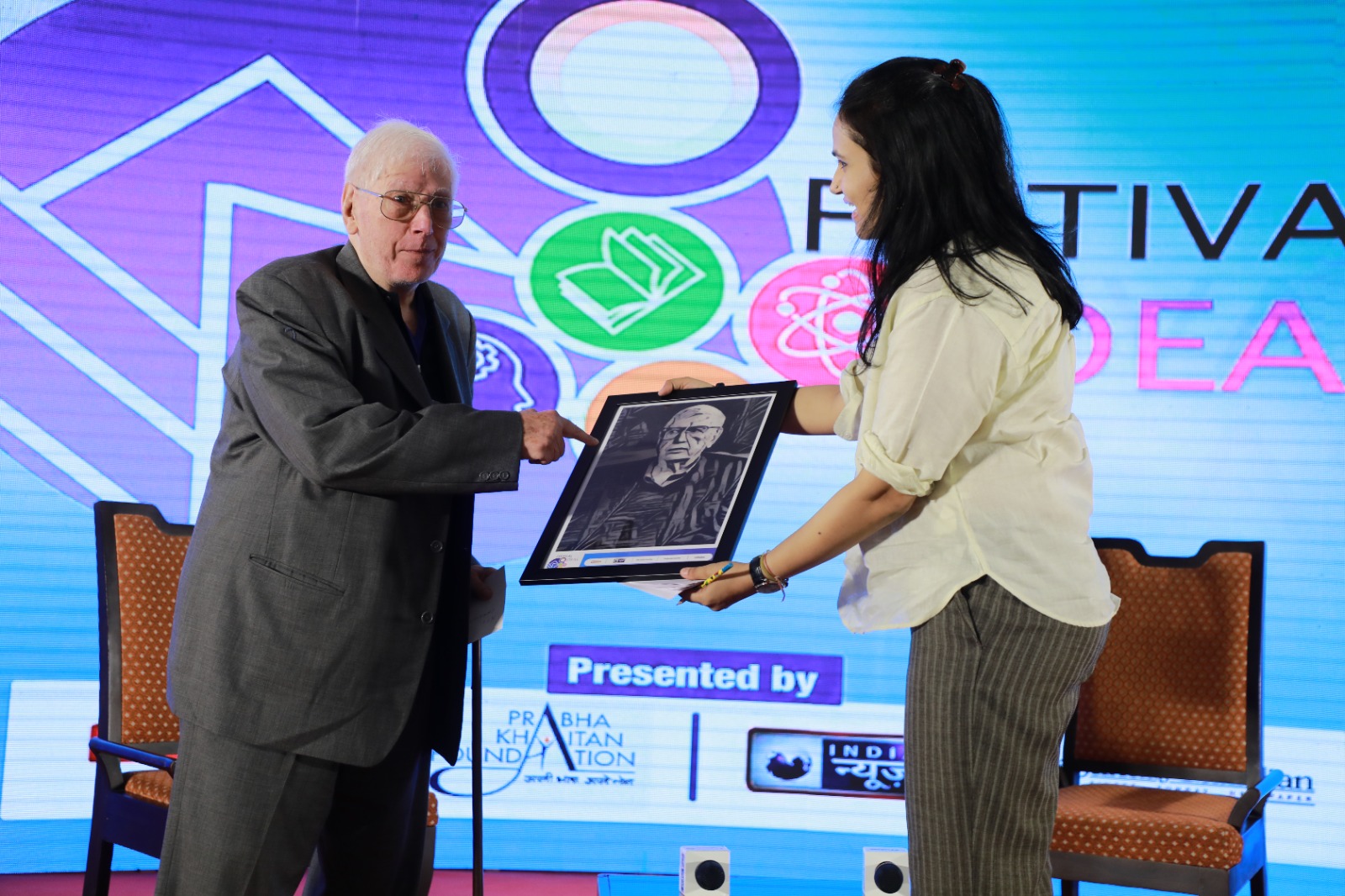US academic and author of ‘The Brotherhood in Saffron’ says RSS wants to unify all Indians.
New Delhi
The Rashtriya Swayamsevak Sangh (RSS) which has had a huge impact on India›s politics and yet remains misunderstood is a mediation platform that with its discussions, debates and continued survey to infuse fresh blood into the organisation brings an amalgamation of diverse sections of society united by their Indian culture, said American academic and author of “The Brotherhood in the Saffron”, Walter K. Andersen. He attempted to explain the Sangh for the audience at the opening session on Day 2 of Festival of Ideas hosted by NewsX, The Sunday Guardian and India News that are a part of iTV network.
“What RSS adds to the plate is Indian culture. They want people to not be ashamed of the Indian culture. And people in fact are proud of what we›ve achieved. And it’s not just landing on the moon but many other achievements of their past.”
In conversation with Aishwarya Pandit Sharma, the American author said that at the core of the RSS ideology is the Hindutva philosophy which has had a profound influence over a huge landmass and population that stretches from Asia to Asia Pacific and beyond across several countries.
It was by accident that Andersen got involved in working on the RSS while he was still studying at the University of Chicago. Preparing a dissertation on how young people get involved in politics, he was advised by the 2014 recipient of Padma Bhushan, Lloyd and Suzanne Rudolph to do something on RSS. Easier said than done, Andersen found “there was very little written on the RSS up to that point”. “One name that kept coming up was K.B. Hedgewar, the founder. He was in many ways a fascinating person. He came from a family of Hindu priests.
Young Hedgewar got involved in politics inspired by a communist politician in Maharashtra›s Central Provinces. In Calcutta, later where he studied Western medicine he attended revolutionary societies. When he got back to Nagpur, amid a communal trouble, Hedgewar and others around him realised that the Hindu community had not done well in responding to several challenges of the time. They found the Hindu community was divided by the caste system. Some of the divisions gave rise to the hierarchy including on the lines of language, economic opportunity. Hedgewar felt the need to create a more united Hindu community. Andersen said Hedgewar felt “until that happened, you are not likely to get into a serious movement like Independence.» It was around 1925, that it turned into a moral decision and on Bijaya Dashami Day, that the plans were put into action. Hedgewar had realized that it would be an enormous effort to bring changes in Hindu society. Part of the objective of the RSS shakhas, or the local units, that came up in future under his guidance created a sense of oneness among the people by even dropping their caste names.
One day at these camps, a person may be serving food, the other day, they may be polishing shoes. So the idea was that you mix responsibilities, that there is no hierarchy at work. Work is work, explained Andersen.
Hedgewar was concerned about the goal of the RSS, which was to unify Hinduism. In his first major speech in Pune at a conference he directly attacked the caste system. M.S. Golwalkar, who became the leader of the RSS in 1940, being a social reformer, opened the door of the RSS for Muslims and Christians as well. And did not surprise those who knew him. He felt that these are people of India too. Golwalkar really transformed the RSS, said Andersen.
The Sangh has internal debates, discussions, it doesn›t work like a block. There›s a greater discussion that›s happening internally within the organization to be a better mediation institution.
The RSS has also moved out from its original social base. You have the example of the current prime minister, who was involved in the RSS at an early age, but his real effort was made to push the social boundaries. It showed that the idea of caste distinctions are not important. In fact, in any context, they should be ignored, said Andersen. RSS wants to unify all Indians and particular efforts were underway by the Sangh to reach out to Christians and Muslims. In fact, there is one of the affiliated groups which is specifically directed at Muslims. “And so you have to be careful how you handle the negative narrative,” he cautioned the opposition.

